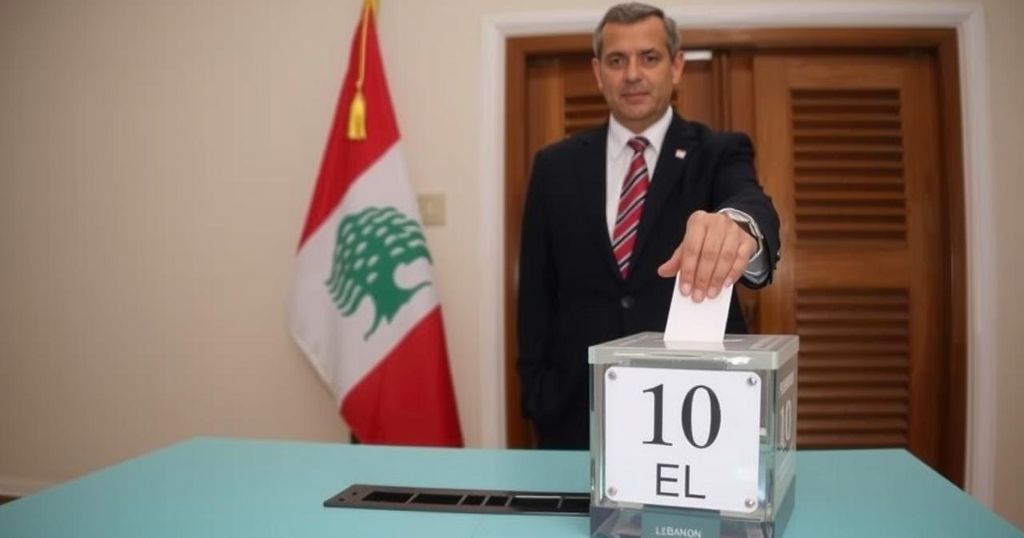Joseph Aoun has been elected as the President of Lebanon, concluding a two-year political vacuum. His election presents an opportunity to address Lebanon’s severe economic and political crises, amid external pressures and geopolitical tensions. However, the challenges are significant, as Lebanon needs reforms to secure international financial assistance and maintain stability in the context of ongoing regional conflicts.
On January 9, Joseph Aoun, a general within the Lebanese Armed Forces, was elected as the President of Lebanon, concluding a protracted presidential vacuum that persisted for over two years. The election was confirmed by the Lebanese parliament, where Aoun garnered 99 votes, surpassing the two-thirds majority needed to secure the presidency. This pivotal event comes after a series of unsuccessful voting sessions in a fragmented parliament, which had been unable to elect a new leader since the previous president, Michel Aoun, saw his term end in October 2022.
Lebanon’s recent political history has been tumultuous, characterized by deep economic crises, primarily stemming from the collapse of its financial system in 2019 and subsequent defaults on public debt. The ongoing economic instability has been exacerbated by external shocks including the COVID-19 pandemic and the repercussions of the Ukraine conflict on global commodity prices. These circumstances have hindered essential reforms that are critical for obtaining international financial support from bodies such as the International Monetary Fund (IMF). Following Joseph Aoun’s election, there appears to be a renewed willingness from international partners, including Saudi Arabia, to extend aid, which is crucial for the beleaguered nation.
Additionally, Lebanon faces significant geopolitical tensions, notably between Israel and Hezbollah. Recent conflicts have inflicted severe damage on the Lebanese economy and resulted in substantial casualties and displacement. The World Bank has estimated that such hostilities have caused damages amounting to approximately USD 8.5 billion in economic and infrastructural losses. Maintaining the truce between Israel and Hezbollah will be essential for stabilizing the region and ensuring Lebanon’s recovery. Despite various accusations of ceasefire breaches, the current agreement seems to be holding, providing a glimmer of hope amid ongoing challenges.
While President Aoun’s election is considered a positive development for Lebanon, it does not diminish the formidable political, financial, and institutional hurdles that lie ahead. Creditworthiness assessments by Credendo continue to classify Lebanon’s short-term and long-term political risk as a 7 out of 7, indicating severe risk. Joseph Aoun’s leadership will be critical in navigating these extensive challenges to restore stability and facilitate necessary economic reforms.
Lebanon has faced a significant political stalemate since the end of Michel Aoun’s presidency in October 2022, with inability to fill the presidential seat leading to institutional paralysis. This vacuum hindered not only the presidential election but also stalled the appointment of key governmental positions, including that of the Prime Minister. The economic decline, marked by a financial system collapse in 2019, compounded by external shocks, has made the need for effective leadership and reform more pressing in order to reestablish international confidence and financial support.
In conclusion, the election of Joseph Aoun as President marks a critical juncture for Lebanon, potentially facilitating a path forward from a prolonged political vacuum. However, substantial challenges remain regarding economic stabilization, political restructuring, and regional security. The concerted effort of both leadership and international partners will be essential to address these key issues and restore Lebanon’s standing amid ongoing adversity.
Original Source: credendo.com






